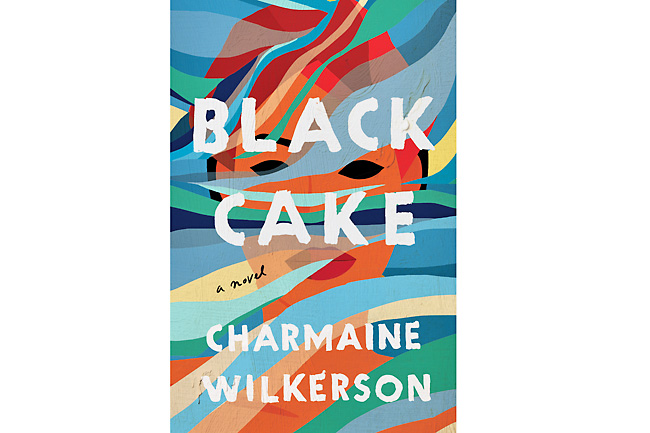Keishel Williams
THE WASHINGTON POST – Black cake has a complicated history. The dense, fruit-packed dessert is a Caribbean tradition during the holidays and weddings. For those no longer living in the islands, it’s also a strong reminder of home. But, as one conflicted character in Charmaine Wilkerson’s debut, Black Cake, noted, it “was essentially a plum pudding handed down to the Caribbeans by colonisers from a cold country”.
Eleanor Bennett, too, has a complicated history. As the novel begins, she has just died in Southern California, leaving her daughter, Benny, and son, Byron, with an audio recording full of long-buried secrets. The estranged adult siblings are also given a note: “B and B, there’s a small black cake in the freezer for you. I want you to sit down and share the cake when the time is right. You’ll know when.”
Before Eleanor’s death, Benny and Byron thought they knew who they were. They were Californians, the children of orphaned Caribbean immigrants. Their lives were not perfect – they were subjected to discrimination and racial profiling, even violence. Still, they understood their place in American society. But as they listen to the story of Eleanor’s convoluted life, a journey of discovery unravels their identities, setting in motion a novel about inheritance and the complications of multicultural family legacies.
Wilkerson intersperses the modern-day story, set in 2018, with Eleanor’s history, dating back to the 1960s on a Caribbean island. Back then, she was Coventina ‘Covey’ Lyncook, a girl of Black and Chinese parentage, whose life revolves around swimming. After her mother leaves, she’s raised by her Chinese father – a gambler – and the family helper, Pearl. Covey has plans for her life that involve escaping her poverty-stricken community to study in London with her sweetheart, Gibbs Grant. But all that is derailed when she’s betrothed to “ruthless moneylender and occasional murderer” Clarence ‘Little Man’ Henry to settle her father’s gambling debts. Complicating things further, Little Man is killed on their wedding day, forcing Covey to flee the island to avoid being arrested for his murder. From there, she’ll spend years running, hiding and lying, eventually settling in the United States (US) under an assumed name.

Those years are filled with heartache, but Eleanor takes solace in a single constant: the black cake recipe she memorised as a child. “This is the only thing that I had left when I lost my family,” she told Benny, tapping a finger on her head. But Byron bristled at Eleanor’s allegiance to a custom with colonial roots. “Why claim the recipes of the exploiters as your own?” he asked. This penetrating look at a delicacy filled with emotional turmoil but built into the very soul of a community echoes more sweeping issues of identity.
Once Eleanor dies, it falls to her children to make sense of her past. The cake plays a central role in helping the siblings discover their history, reexamine their identities and bring together family members whose existence had been kept secret.
Black Cake is a delectable read. Wilkerson’s scenes unfold as quick-paced vignettes, immersing readers into the minds and environments of the characters. It takes us on a journey that forces us to look at how both chance encounters and historical events, such as the transatlantic slave trade and Windrush migration, alter a family. The effects ripple out for generations, and the novel allows for a full reflection on how one’s self-identity can change in an instant.
Wilkerson’s intent is clear: We are left to think about the things we inherit from our ancestors – physical traits, mental and emotional strife, even cultural attachments, like a beloved recipe that has the power to bring us home, if only in our minds.



















































